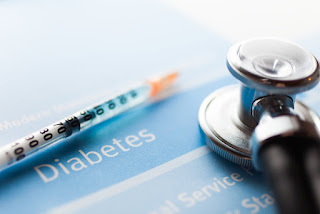Diabetes and Your Hormones
Diabetes has a long-running history dating as far back as to ancient Egypt, nearly 3,000 years ago, where there was mention of typical tell-tale symptoms of diabetes. Through the ages, many societies spread across geography, and time noted this mysterious condition. Frequent observations shared between these groups, such as the ancient Greeks, Romans, and Chinese, all stated the high-glucose content found in sufferers' urine. Other notes included fatigue, thirst, and weight loss common to those affected with "sugary urine" (a term coined by those in ancient India when they discovered the attraction that ants had with diabetic urine).
Over time, other societies began to observe that the condition seemed to be stereotypically associated with the rich, fat, and sedentary. This seemed to indicate that diet and lifestyle contributed to the condition. And while that very much falls in line with our current modern understanding of type II diabetes, the disorder still remained relatively rare amongst societies. The classification between type I and type II diabetes wouldn't arise until the 1700's when an English doctor made a distinction that people with the condition either faced fatal or chronic effects. And leading into the early 19th century, people that first displayed the first signs of the condition found themselves dead a few weeks to a couple of months later.
Diabetes, type I or II is nowhere as fatal or inhibitory as it once was through the ages. With the advent of more modern medicine as well as improved knowledge of the condition, scientists and doctors learned that diabetes stems from a hormonal issue directly involved with the pancreas. And with improved understanding came ways to manage the condition.
Diabetes mellitus occurs when specialized cells within the pancreas called beta cells can no longer produce a hormone called insulin. The pancreas is designed in response to food uptake to release insulin. When food is consumed and digested, glucose is absorbed from the food into one's bloodstream. Insulin is supposed to lower this increased blood sugar level by having muscle, liver, and fat cells absorb excess glucose to be stored as energy. People with Type I diabetes have defunct or destroyed insulin-producing cells, which equates to the body's inability to produce insulin naturally.
As a consequence, glucose (a.k.a energy) is no longer being stored and is set to be continuously released. With this steady release of glucose, blood sugar levels rise which, in turn, causes dehydration and thirst. To make matters worse, without insulin production, the body thinks that it's starving, so it releases even more stored energy. Left untreated, patients become increasingly unwell and can develop diabetic ketoacidosis.
For patients with Type II diabetes, they still have beta cells within their pancreas that are churning out insulin. However, this insulin has a design flaw which makes it ineffective at storing glucose from the bloodstream. Since the insulin isn't as effective, the pancreas produces more and more insulin to help with glucose absorption. But because more and more insulin is available, the body builds up a sort of tolerance or resistance to insulin. In turn, those with insulin resistance are prone to obesity.
While there remains no cure for diabetes, insulin shots, and management of lifestyle and diet can help ameliorate the condition. It's prudent to exercise the right precautions: managing the amount of sugar consumed from your foods, being active, and being regimented with insulin doses. Patients' who have overlooked these responsibilities put not only their physical health at risk but also their mental and sexual health as well.
What effect does diabetes have on our hormones for men and women?
Prolonged high blood sugar levels have been found to cause nerve damage throughout the body. In women, this nerve damage can dampen their ability to experience arousal and sexual stimulation. Additionally, a woman can experience issues with natural vaginal lubrication as a result of nerve damage caused by diabetic high blood sugar levels. To add insult to injury, diabetic women are more prone to urinary tract infections, thrush, and cystitis.In cases of sexual health of diabetic men, one of the leading issues is lowered testosterone levels, which affect libido. Furthermore, because high blood sugar levels leading to nerve damage can affect blood vessels, many men experience problems with erectile dysfunction. And in both male and female instances, issues with sexual health can directly impact mental-health through performance anxiety, self-esteem, etc.
Given the prevalence of diabetes in our world, this condition is no longer the mysterious threat it once used to be. And while modern medicine has basically halted the severity of diabetes, it still remains a health condition that requires being proactive regarding your health. While Type I diabetes is unpreventable if it's written in your genes, it's possible to avoid incurring Type II diabetes by living your healthiest life.
For medical weight loss programs and hormone therapy questions, please contact Vitality Aesthetic & Regenerative Medicine in Palm Harbor Florida. 727-771-3915 or visit https://varmedicine.com

Comments
Post a Comment